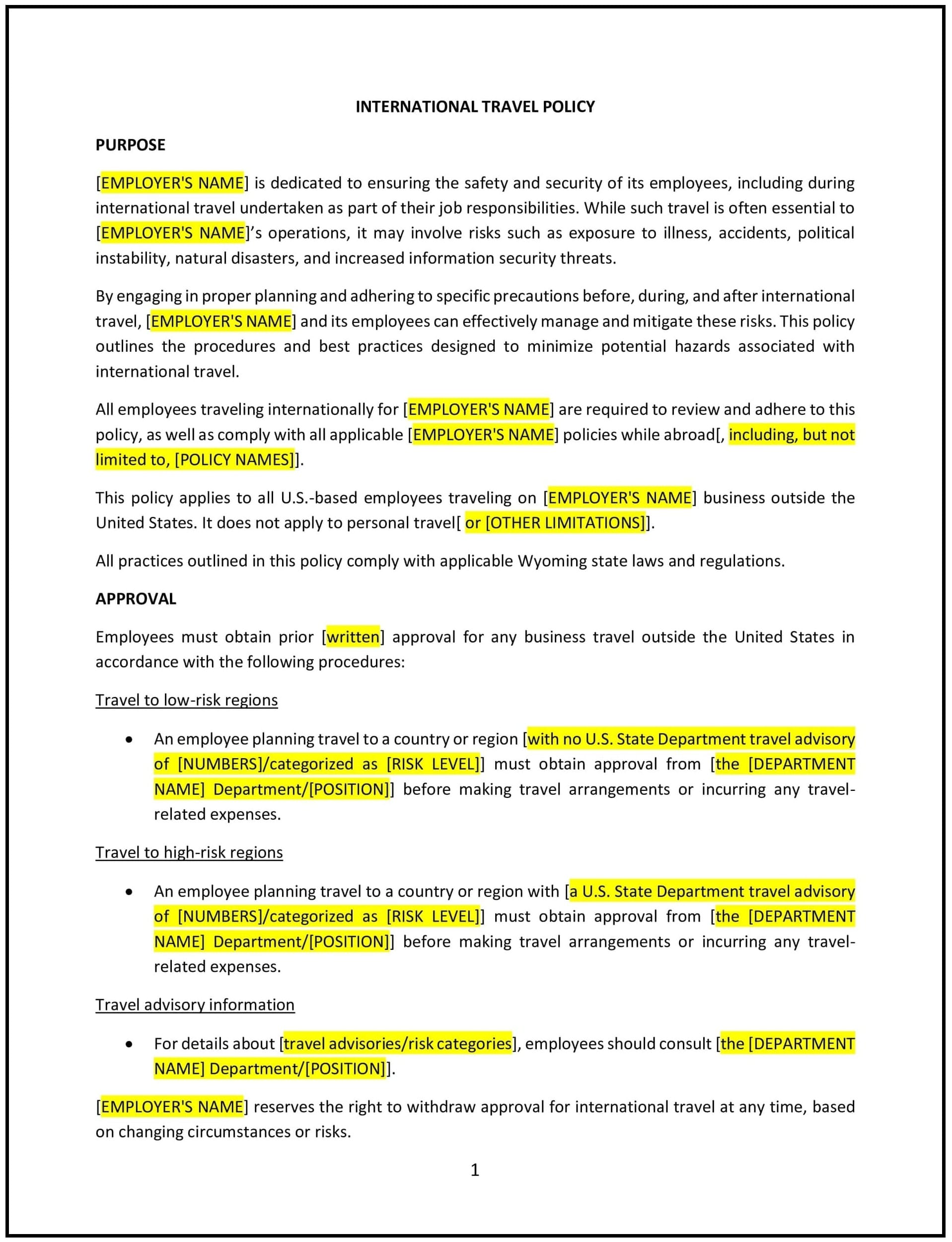International travel policy (Wyoming): Free template
Got contracts to review? While you're here for policies, let Cobrief make contract review effortless—start your free review now.

Customize this template for free
International travel policy (Wyoming)
In Wyoming, an international travel policy provides guidelines for employees traveling abroad for business purposes, ensuring safety, promoting compliance, and effective use of company resources. This policy is particularly valuable for organizations expanding operations, attending global events, or managing international partnerships.
This policy outlines procedures for planning, approving, and conducting international business travel, protecting both employees and the organization.
How to use this international travel policy (Wyoming)
- Define the scope: Specify the types of travel covered, such as conferences, client meetings, or project work abroad, and identify eligible employees.
- Establish approval processes: Include clear steps for requesting and approving travel, such as submitting a travel request form and obtaining manager or executive approval.
- Set travel expense guidelines: Provide details on allowable expenses, such as airfare, lodging, meals, and transportation, and outline reimbursement procedures.
- Address safety protocols: Include measures for ensuring employee safety, such as travel insurance, emergency contact procedures, and compliance with U.S. State Department travel advisories.
- Support compliance: Ensure the policy aligns with Wyoming and federal laws, as well as international travel regulations, to minimize legal and operational risks.
Benefits of using an international travel policy (Wyoming)
An international travel policy offers several advantages for Wyoming businesses:
- Promotes safety: Protects employees during international travel by providing clear guidelines and resources for emergencies.
- Supports compliance: Ensures adherence to travel and expense regulations, reducing the risk of non-compliance.
- Improves cost management: Establishes clear expense guidelines, helping businesses control travel costs effectively.
- Enhances productivity: Provides employees with the tools and information needed to focus on business objectives while traveling.
- Reflects organizational values: Demonstrates a commitment to employee well-being and responsible resource management.
Tips for using an international travel policy (Wyoming)
- Communicate expectations: Share the policy with employees during onboarding or before planned travel to ensure understanding.
- Leverage technology: Use tools like expense tracking software and itinerary management apps to simplify compliance and reporting.
- Encourage pre-travel training: Offer briefings or resources on cultural awareness, safety, and legal considerations in destination countries.
- Maintain flexibility: Adapt travel guidelines for specific circumstances, such as emergency travel or unique business needs.
- Review regularly: Update the policy to reflect changes in travel regulations, company objectives, or global conditions.